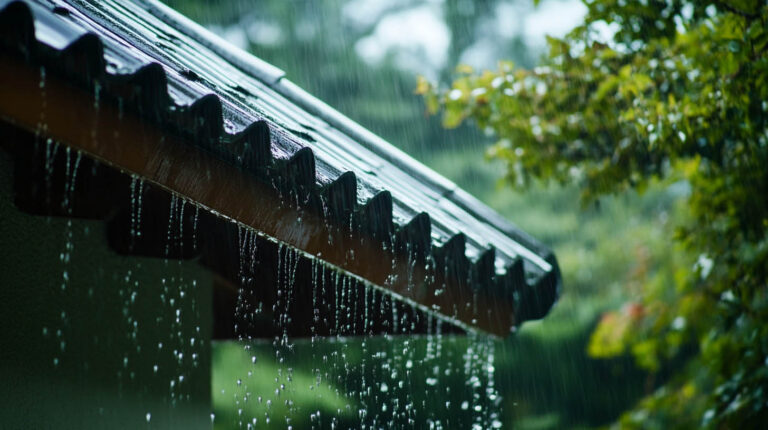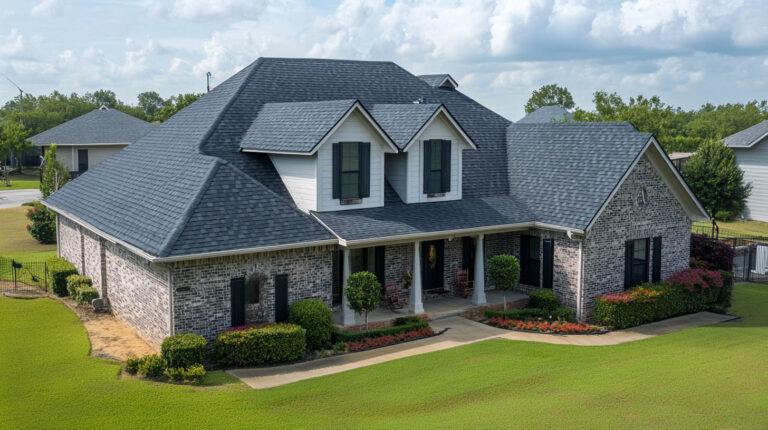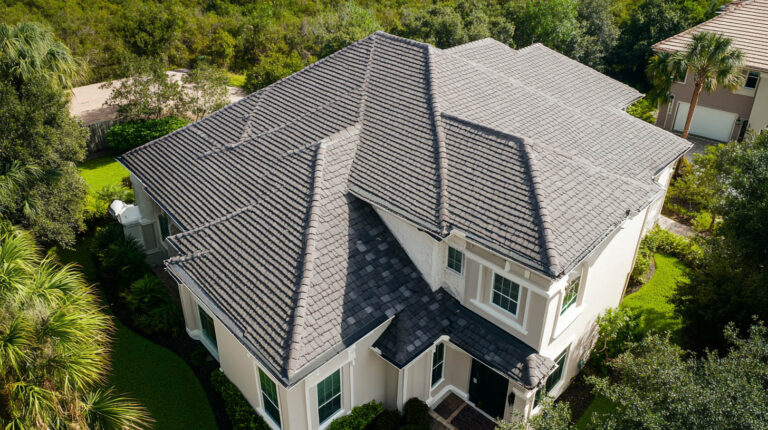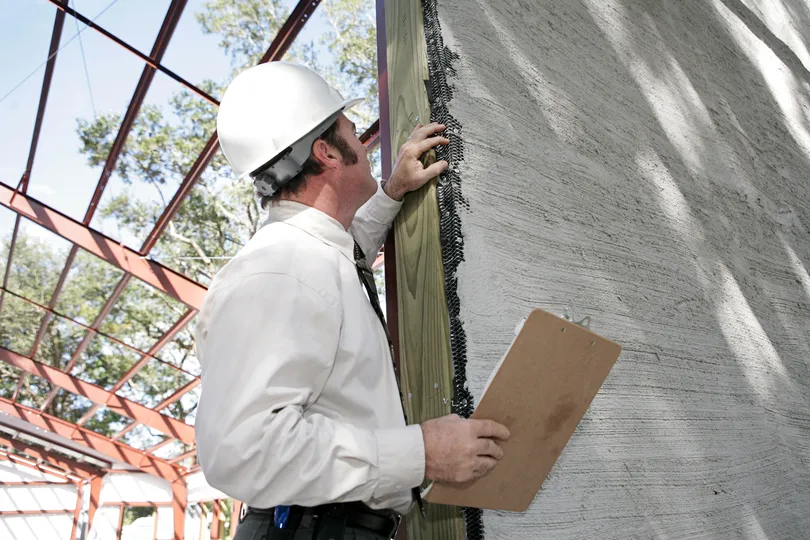
Blog
6 Things To Know About A Roof Inspection For Insurance
Owning a home is one of the most significant investments you’ll make in your lifetime. Ensuring that your home is well-maintained and protected is crucial, and one of the most critical aspects of home maintenance is the roof.
A roof inspection for insurance purposes is not only a smart move but often a necessary one.We are here to walk you through everything you need to know about roof inspections for insurance, including:
- When insurance will cover roof damage
- Why a roof inspection is necessary
- What will be looked for during the inspection
- How your roofer and insurance company will work together
Why is a Roof Inspection Necessary?
Your roof is your home’s first line of defense against external elements like rain, wind, snow, and sunlight. Over time, these elements can cause wear and tear, leading to potential damage. A roof inspection is essential for several reasons:
- Early Detection of Issues: Regular roof inspections can help identify minor problems before they become significant issues. Early detection can save you from costly repairs or even a complete roof replacement.
- Insurance Requirements: Many insurance companies require a roof inspection before they approve a policy or process a claim. An inspection ensures that the roof is in good condition and helps assess the extent of any damage.
- Ensuring Safety: A damaged roof can pose serious safety risks. Loose shingles or tiles can fall off, and leaks can lead to water damage inside your home, causing mold and structural issues.
- Increasing Property Value: A well-maintained roof adds to the overall value of your property. If you’re planning to sell your home, a recent roof inspection report can be a valuable selling point.
When Will Insurance Cover Roof Damage?
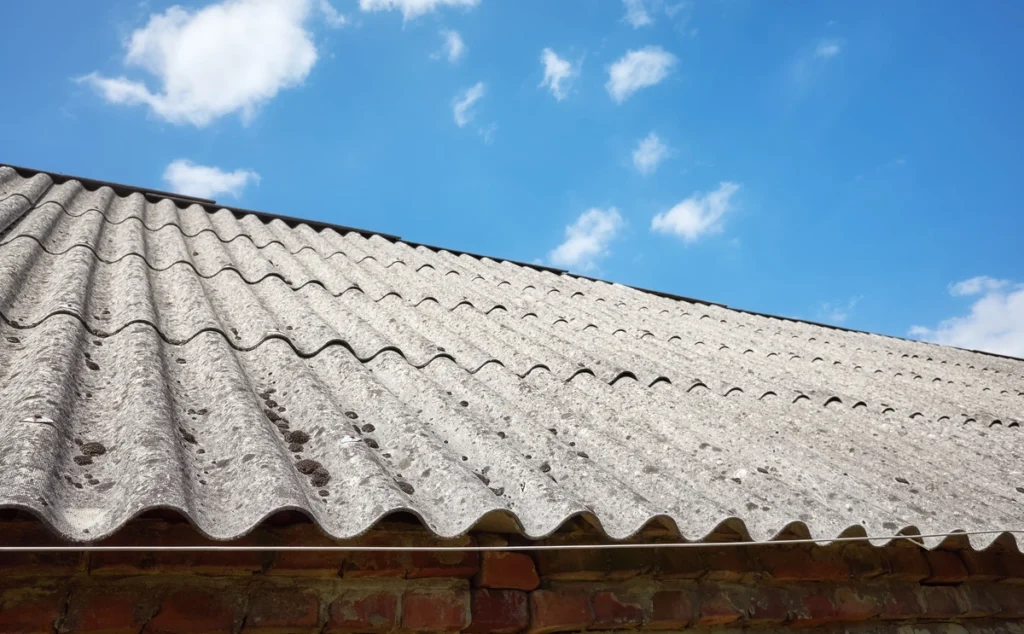
Understanding when and how your insurance will cover roof damage is crucial. Here are some scenarios where insurance may come into play:
Covered Perils
Most homeowners’ insurance policies cover damage caused by “covered perils” such as:
- Fire: Damage resulting from a fire, including smoke damage.
- Wind and Hail: Damage caused by high winds or hailstones.
- Vandalism: Deliberate damage to your roof.
- Falling Objects: Damage caused by objects falling onto your roof, such as tree branches.
Exclusions
It’s equally important to understand what is not covered. Common exclusions include:
- Wear and Tear: Damage due to the age and normal wear and tear of the roof.
- Neglect: Damage resulting from a lack of maintenance or neglect.
- Floods and Earthquakes: These events often require separate insurance policies.
Filing a Claim
When filing an insurance claim for roof damage, insurers may require detailed documentation, including:
- Inspection Reports: A professional roof inspection report detailing the damage.
- Photographs: Clear photos of the damaged areas.
- Estimates: Repair or replacement cost estimates from licensed contractors.
What Will They Look For During a Roof Inspection?
A professional roof inspection involves a thorough examination of various components of your roof. Here’s what inspectors typically look for:
1) Shingles or Tiles
Inspectors will check for:
- Missing or Loose Shingles/Tiles: Missing pieces can expose your roof to water damage.
- Cracked or Broken Shingles/Tiles: These can lead to leaks and further damage.
- Granule Loss (for asphalt shingles): Significant granule loss can indicate the shingles are nearing the end of their lifespan.
2) Flashing
Flashing is the metal material used around chimneys, vents, and other roof penetrations to prevent water from seeping in. Inspectors will look for:
- Corrosion or Rust: This can weaken the flashing and lead to leaks.
- Loose or Damaged Pieces: Ensuring that all flashing is secure and intact.
3) Gutters and Downspouts
Properly functioning gutters and downspouts are crucial for directing water away from your roof and home. Inspectors will check for:
- Clogs: Debris that can block water flow.
- Leaks: Cracks or holes that can cause water to seep into the roof or walls.
- Proper Attachment: Ensuring gutters and downspouts are securely attached to the roof and house.
4) Roof Ventilation
Proper ventilation is essential for maintaining the health of your roof. Inspectors will look for:
- Blocked Vents: Ensuring vents are clear and functioning correctly.
- Signs of Moisture: Indications of poor ventilation, such as mold or mildew in the attic.
5) Structural Integrity
Inspectors will assess the overall structure of the roof, looking for:
- Sagging: Signs that the roof’s structure may be compromised.
- Water Damage: Stains or soft spots that indicate water infiltration.
6) Interior Inspection
In some cases, inspectors may also examine the interior of your home, especially the attic, for:
- Water Stains: Indications of leaks.
- Mold or Mildew: Signs of prolonged moisture exposure.
- Light Penetration: Light coming through the roof boards, indicating gaps or holes.
How Your Roofer and Insurance Company Will Work Together
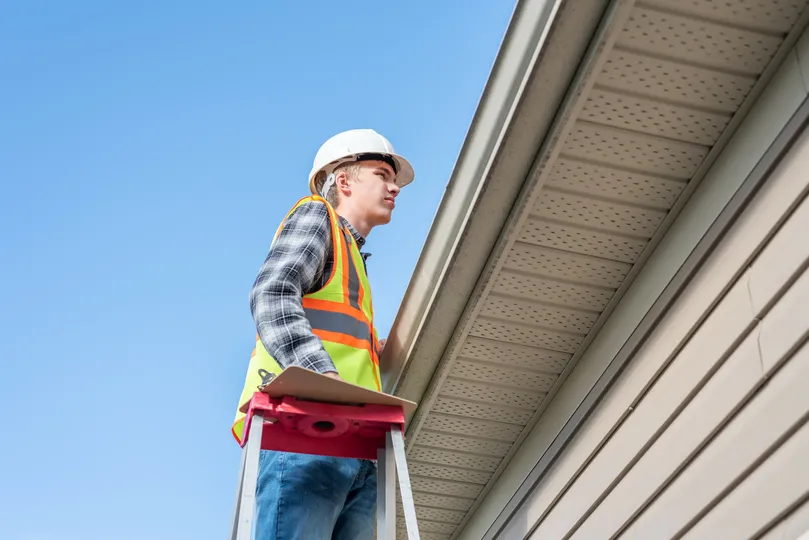
Navigating the relationship between your roofer and insurance company can be complex, but it’s essential for a smooth process. Here’s how they typically work together:
Initial Inspection
Your roofer will conduct an initial inspection to assess the damage and provide a detailed report. This report will be crucial when filing a claim with your insurance company.
Filing the Claim
Submit the inspection report, along with photographs and repair estimates, to your insurance company. Your roofer can often assist in preparing the necessary documentation.
Insurance Adjuster Visit
An insurance adjuster will visit your home to verify the damage and determine the coverage. Your roofer should be present during this visit to answer any technical questions and ensure nothing is overlooked.
Approval and Repairs
Once the claim is approved, your roofer will schedule and carry out the necessary repairs. They will work within the budget set by the insurance company and ensure all work meets industry standards.
Final Inspection
After the repairs are completed, your roofer and the insurance adjuster may conduct a final inspection to ensure everything is in order. This step ensures all repairs were completed satisfactorily and the claim can be closed.
Work With a Roofing Contractor Who Gets It
Roof inspections for insurance purposes are vital for maintaining the integrity of your home, ensuring safety, and protecting your investment.
Don’t wait for a problem to arise—be proactive and schedule a roof inspection today. And if you need professional assistance, don’t hesitate to contact our team of expert roofers at Avenue Roofing who are ready to help you every step of the way.
Ready to ensure your roof is in top condition? Schedule a professional roof inspection today and protect your home from potential damage. Contact us now to get started!
